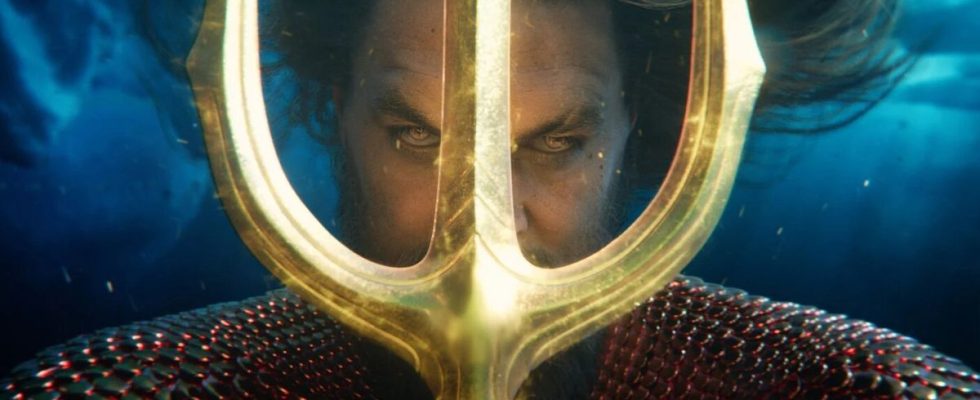Impossible for a newspaper to write all the good (or bad) it thinks aboutAquaman and the Lost Kingdom, because no representative of the press will have seen it in time. It wasn’t until Tuesday evening that we discovered what happened to Jason Momoa in this second part, not during a press screening, but during the public preview. The reason ? James Wan’s film was not shown to the press. And there are a few each year, these films that the newspapers were not able to view before the spectators. Why stop us from doing our job? Maybe just because they suck? 20 minutes the question was asked.
First observation: professionals – distributors, press officers and even journalists – have plenty of things to say on this subject but no one wants to testify openly. Distributors fear the reactions of film crews. Press officers are afraid of those of the distributors who pay them and journalists are scared at the idea of no longer being invited! It is therefore under cover of anonymity that we obtained some elements of answers.
French comedies in the spotlight
American feature films are rarely hidden from journalists but they are protected by embargoes. Screenings, sometimes late, can explain this: this is to prevent journalists from publishing a review before a specific date and time (close to the theatrical release). Aquaman is really an exception and this undoubtedly comes from the promotion made difficult by the explosive relationship between Amber Heard and Jason Momoa (Warner, requested by 20 minutes, did not wish to comment on this subject). French comedies (The Segpa, the “Ducobu” sagaThe Revenge of Master Poutifard… basically, around fifteen films per year) are, on the other hand, a plethora of which were hidden from us before their release. “We don’t want to be massacred by the press,” confides a distributor. Journalists are often choosy about these films which are not their thing. We then prefer TV or radio where the performers come to do the show without us really talking about the film. »
“That’s why we have to deal with all this crap!” » confides the film journalist of a television talk show wearily. And yes, such is the paradox: some are refused permission to discover these films, while others are harassed to see them in order to receive the teams on set. The press officers, who organize the screenings, are responsible for selecting the media that will be invited at the discretion of the distributors. “The latter seek to limit the risk of people saying bad things about their films,” confides a press officer. This is often unrelated to the quality of the feature film, which is a subjective element. And this is what must be explained to the teams who sometimes take umbrage that their films are not shown more to the press. » When you’ve spent months working on a project and your film isn’t shown to some of the press can be hard to swallow, if not downright annoying.
The terror of distributors
In reality, the biggest fear of professionals comes down to one word: Allociné. It seems that this is where the future careers of films are made and undone. “Their stars are what viewers watch first. When we fear the judgment of a critic, he can in fact be banned from screenings, especially if he is part of the Allociné panel,” admits a press officer.
This is why you will have to wait until Tuesday, late at night, to find out what 20 minutes think of Aquaman, a film that no one was able to see, TV included. So are films that aren’t shown to the press necessarily bad? “What is certain is that no masterpiece has ever been hidden from the media,” comments a colleague. We couldn’t have said it better.

